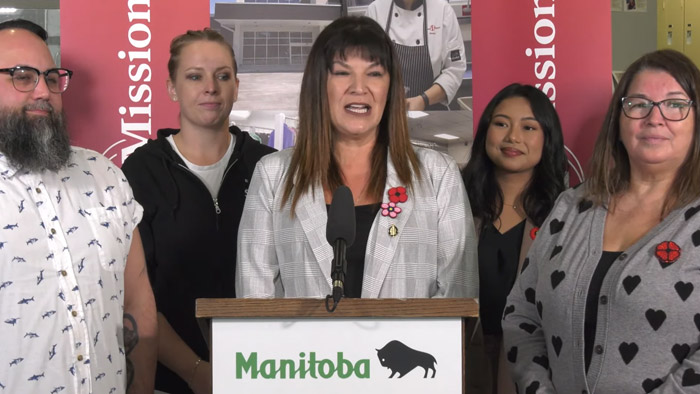Budget 2024 will take the first steps in ending chronic homelessness with a $30-million investment to build, renovate and acquire new social housing units in partnership with non-profit community housing providers.
“To end chronic homelessness in eight years, we have to move quickly,” said Premier Wab Kinew. “Our budget sets aside funding to build more housing faster so we can get people out of tents and into safe homes. This funding will add more housing to our supply in partnership with community leaders so we can tackle this challenge together.”
Budget 2024 includes a $20-million capital grant program for the not-for-profit sector to increase the supply of social housing across the province. Community housing providers will be able to apply to the program for capital funding to acquire existing buildings that could be renovated into new social housing units, renovate existing social housing stock or construct new units.
The budget also sets aside $10 million for a new Affordable Housing Partnership Program which will see the province work with municipalities and Indigenous governments to facilitate the planning, development, conversion and building of new social housing units.
“There are so many Manitobans who need a safe place to call home. Our budget includes targeted investments to build those homes,” said Housing, Addictions and Homelessness Minister Bernadette Smith. “Our government is partnering with the not-for-profit sector, municipalities and Indigenous governments to increase supply across the province, so all Manitobans who need a place to live can find one within their means.”
The Manitoba government has made important progress on its commitment to end chronic homelessness, noted the premier. In just six months, the Manitoba government, in partnership with community partners, has connected more than 150 people experiencing homelessness with temporary or permanent housing and wrap-around supports, the premier noted, adding the province has already provided capital and operating funding to support the development of over 1,300 housing units, of which more than half are to be rented at rent-geared-to-income or affordable rates.




